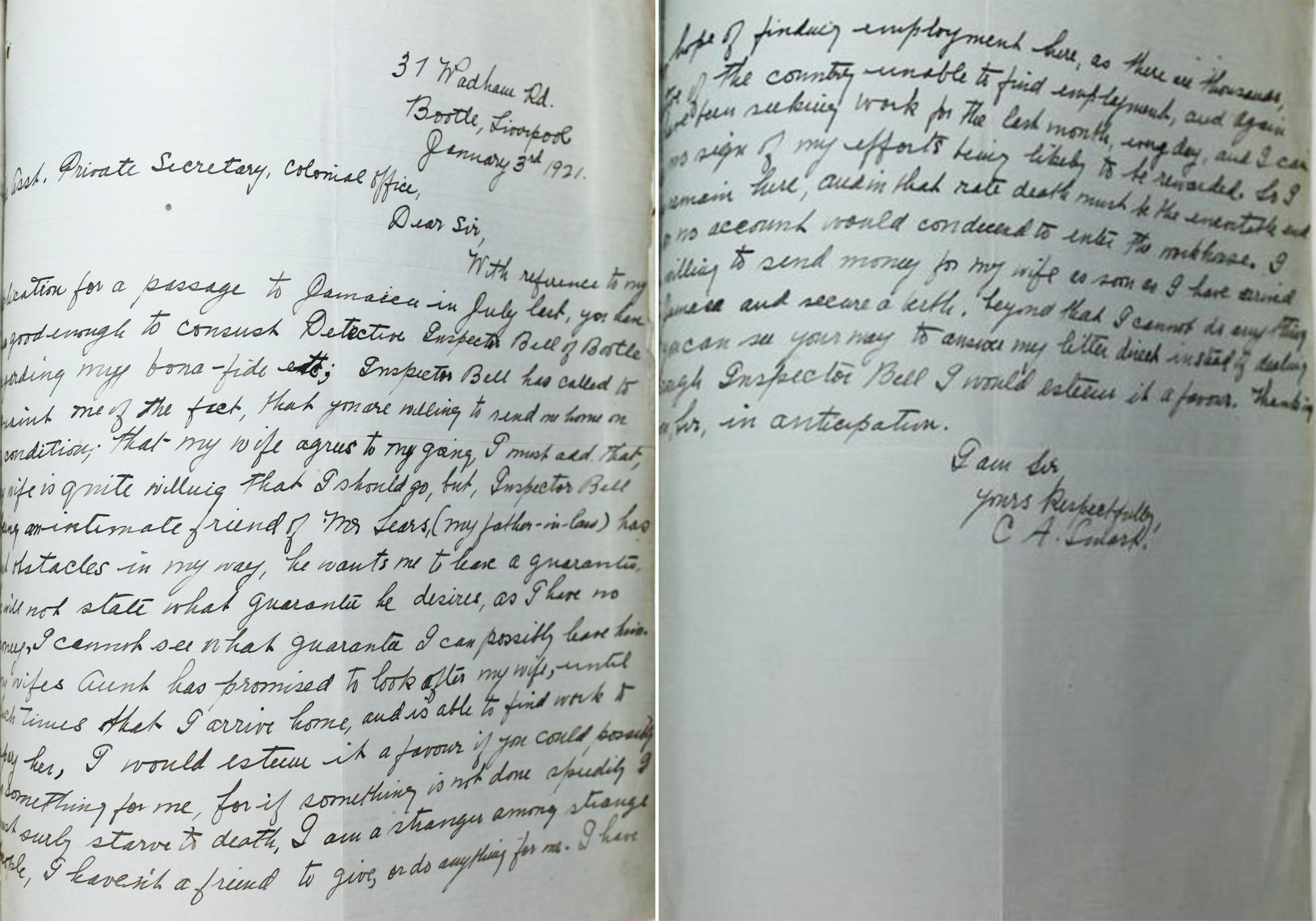
Letter from a seaman named Claudius Smart to the Colonial Office, London 3 January, 1921. Catalogue ref: CO 137 744
Transcript
The Assist. Private Secretary, Colonial Office, 31 Wadham Rd,
Bootle, Liverpool
January 3rd 1921.
Dear Sir,
With reference to my application for a passage to Jamaica in July last, you have been good enough to contact Detective Inspector Bell of Bootle regarding my bona-fide [illegible], Inspector Bell has called to acquaint me of the fact, that you are willing to send me home on condition that my wife agrees to my going. I must add that, my wife is quite willing that I should go, but, Inspector Bell, being an intimate friend of Mr Sears, (my father-in-law) has put obstacles in my way, he wants me to leave a guarantee, he will not state what guarantee he desires, as I have no money, I cannot see what guarantee I can possibly leave him. My wife’s aunt has promised to look after my wife, until such time that I arrive home, and is able to find work to repay her. I would esteem it a favour if you could possibly do something for me, for if something is not done speedily I must surely starve to death. I am a stranger among strange people, I haven’t a friend to give, or do anything for me. I have no hope of finding employment here, as there are thousands of men? In the country unable to find employment. And again I have been seeking work for the last month, every day, and I can see no sign of my efforts being likely to be rewarded. So I may remain here, and in that rate death must be the inexorable [unavoidable] end as on no account would I condescend to enter the workhouse. I am willing to send money for my wife as soon as I have arrived in Jamaica and secure a berth. Beyond that I cannot do anything. If you can see your way to answer my letter direct instead of dealing through Inspector Bell, I would esteem it a favour.
Thanking for this, in anticipation.
I am Sir,
Yours respectfully,
C. A. [Claudius] Smart
Look at source 8.
- How does Claudius Smart express himself in this letter to explain the difficulties of his situation?
- How does he suggest that the authorities could resolve it?
- Can you explain what the repatriation scheme involved?
- How did repatriation affect the seamen, their wives and their wider families?
- What can we infer from this source and source 7 about the attitudes of the authorities and the public towards white British women who married black men at this time?
- What can we learn about the personal circumstances/predicament of the women, men and families affected by these changes?
